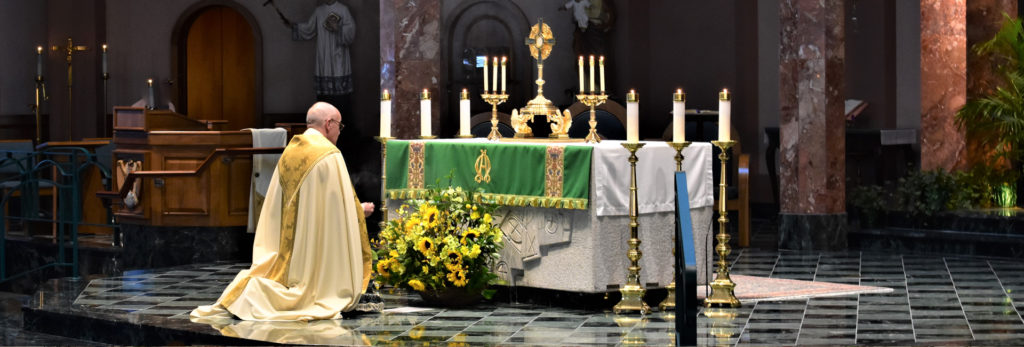The story of Abraham’s intention to sacrifice his son Isaac doesn’t resonate well on first hearing. Would a father really take the life of his son because God asked him to? While a shining (though difficult) example of obedience to the will of God, the story makes sense only in light of the sacrifice of Jesus on Good Friday. We are consoled when the angel instructs Abraham to halt the slaying and what follows is praise from God for Abraham’s faithfulness. But we might still go back to the moment when Abraham decided to carry out God’s original instructions, and ponder God’s intentions. Is this a test of loyalty? A lesson in trust? An example of mercy? What if we consider Abraham’s intentions: Was he so in love with the one true God who was writing the story of salvation that he would ponder making a sacrifice of his own flesh and blood – another one he loved? I believe the answer is “Yes.”
Abraham, Isaac, and Jesus are all part of the story of the history of salvation; that is, God working in the world to redeem the world. God’s faithfulness to the human family comes alive because it involves flesh and blood. Abraham’s faith is strong, but God’s love is stronger and manifests in the sacrifice of His own flesh and blood. Isaac is spared, but God’s beloved Jesus is not, and that’s how the story was intended to be written. The sacrifice of Jesus is the perfect sacrifice; thus, Isaac lives, faithful Abraham is praised, and we can live forever in the crucified and risen Jesus.
The season of Lent affords us the opportunity to ponder the term “sacrifice.” We can decide to make sacrifices of our own: fasting, forsaking personal time to get to daily Mass, or giving of time or treasure for the sake of others. Many bear crosses of sickness, pain, disappointment, loneliness, and fear – all of these a sacrifice of consolation. This grace-filled season should lead us to this understanding: all of our sacrifices and cross-carrying will not make sense unless we bring them to the Cross of Jesus. Once we are there, we should look up, and understand that those are our wounds, the sacrifice is for our sake, and God loves us through it all. In sum, we should not sacrifice joy because God has sacrificed His Son.
May the blessings of Lent continue for you.
![]()


 Welcome to the Saint Aloysius! Our parish was founded in 1896 to serve the Catholic families that were settling in the greater New Canaan area.
Welcome to the Saint Aloysius! Our parish was founded in 1896 to serve the Catholic families that were settling in the greater New Canaan area.